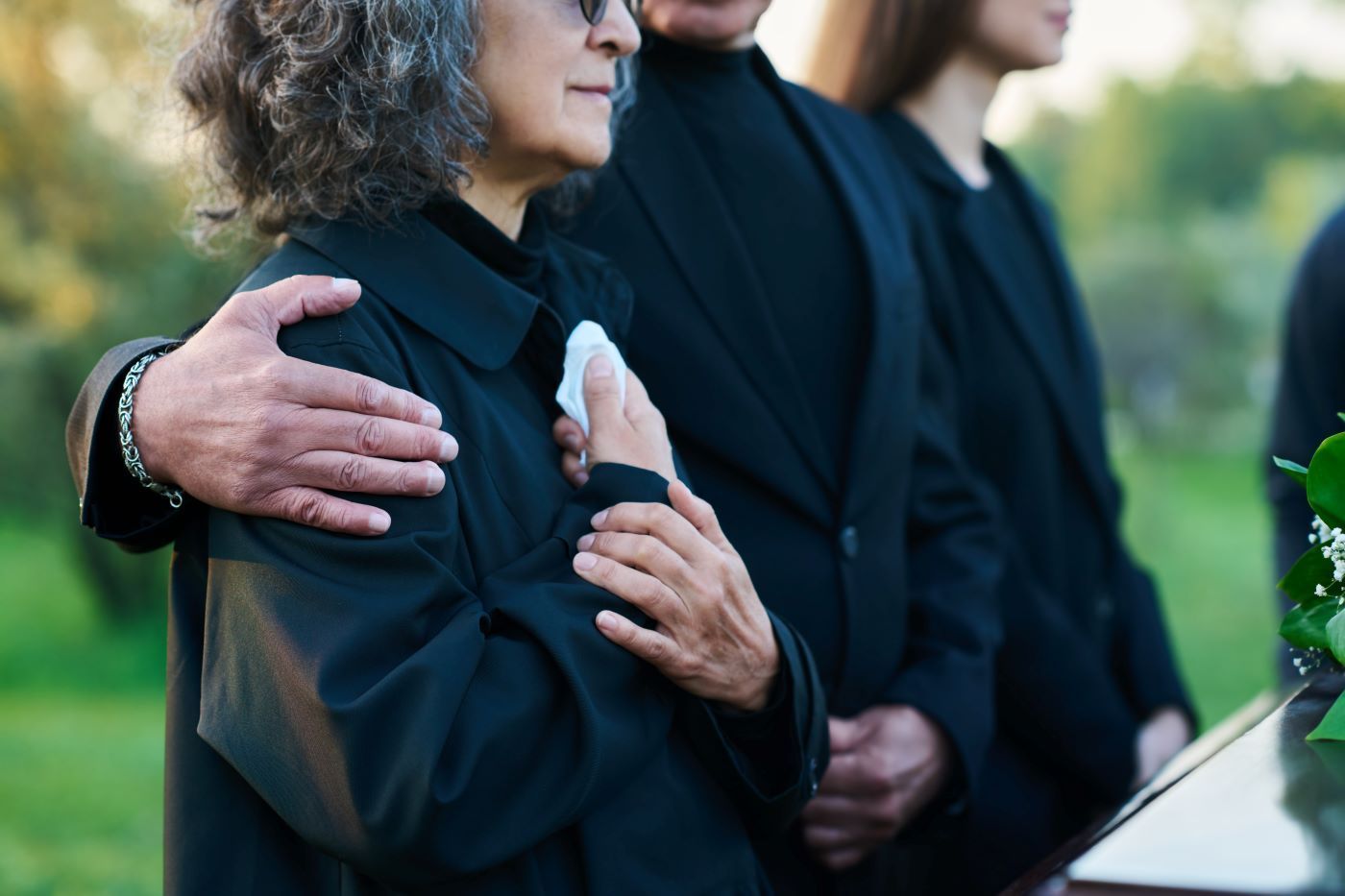The Grieving Process
We have provided this information to help you understand some of the emotions you may be experiencing. While this isn’t an exhaustive guide to grief, we hope it offers you some support. Most of all, know that there is Hope After Heartache, even though it may not feel that way right now.
Grief is a journey, not a timeline: The Grieving Process
Each person experiences grief in their own way. While no two journeys are the same, many people share common emotions as they begin to process loss and move toward healing.
Grieving the loss of a loved one is a unique experience for everyone. Even within the same family, people will grieve differently based on their relationship to the deceased, their personal circumstances, and other factors. It is important to express how you are feeling in a safe, accepting environment rather than shutting down your emotions. This might be with a trusted friend or family member, clergy, in a grief support group, or with a licensed grief therapist.
Contrary to popular belief, there are no finite “stages of grief.” Grief is messy, and you may feel a range of emotions throughout the day - from sadness to anger to disbelief that your loved one is gone.
Think of grief like ocean waves. The feelings come and go, sometimes quickly and sometimes more slowly than we would like, but they don’t stay at the same intensity forever. It is normal to move in and out of different emotions and to cycle back through them repeatedly as you continue working through your grief.
Early on, you may feel a sense of detachment, shock, or numbness. You may even wonder why you are not more upset over your loss. This feeling of disconnection is a survival response. It is simply nature's way of helping you to continue to function on a basic level while under extreme stress. Denial is a tool that can unconsciously enable you to do the things that are necessary to carry on with your life in the days immediately following your loss.
At some point, you may feel anger - at the doctors, family members, the person who died, or even at God. Anger is a necessary part of the healing process. It’s connected to your pain. The more you allow yourself to truly feel this anger alongside the pain, the more it will diminish, and the more you will heal. However, it is important not to turn that anger toward yourself or direct it inappropriately at others.
Guilt is also common while processing loss. You may find yourself thinking about things you “should have done” or wishing you had acted differently. If you feel this way, try to remember that you likely did the best you could at the time with the knowledge you had. If anger or guilt becomes difficult to manage, talking with a licensed grief therapist can help you sort through these complex emotions and find ways to cope.
You may also feel guilty when you catch yourself laughing, smiling, or feeling happy. You might wonder how you can experience these emotions when your loved one has died. Often, these moments come from remembering something good you shared, or from enjoying brief respite while spending time with others. Remind yourself that your loved one would want you to feel joy again, and know that happiness has its place in the grieving process as well.

How long will I feel this way?
Grief has no set timeline. Everyone moves through it at their own pace, and healing can take time. While many people find the first year especially challenging, it’s normal for emotions to come and go long after. Be patient with yourself—you’re not alone.
There is no magic timeline for grief. It’s a process of remembering the life you shared with your loved one while slowly stepping into your “next chapter” of living. Your heart has no calendar—it only knows that someone you love is no longer here. Unfortunately, grief is a journey with no set finish line. Nothing magically changes on the first anniversary of their passing.
Instead, over time, you begin to find your way toward a “new normal.” Small moments become markers of healing. You may even discover an inner strength you didn’t know you had.
Having family and friends to lean on can make this journey a little easier. Talking about your loved one and sharing how you’re feeling helps you process this unfamiliar life you’re now living. Attending a grief support group can also be helpful, allowing you to share with others who truly understand. Listening to their stories can remind you that you’re not alone in what you’re going through.
As time passes, you’ll find yourself adapting to a new rhythm of daily living. Your routines may change, and new opportunities may arise. You may accomplish things you never imagined you could, while also learning to ask for help when you need it. Life does move forward, but you will always carry your loved one with you—and the love you shared will never die.
You may find our booklet, A Brief Exploration of Grief, helpful. Click here to access this valuable resource.
Complicated Grief
The grieving process is influenced by many factors—your relationship with the person who died, the circumstances of the loss, your support system, and any previous experiences with trauma or grief.
Sometimes, grief can become prolonged or overwhelming, especially if you’ve experienced other recent or unresolved losses. This is known as complicated grief—when the natural healing process is disrupted or delayed.
If your grief feels unrelenting or begins to interfere with daily life over time, it may be helpful to speak with a grief counselor or mental health professional. You don’t have to face it alone—support is available.


